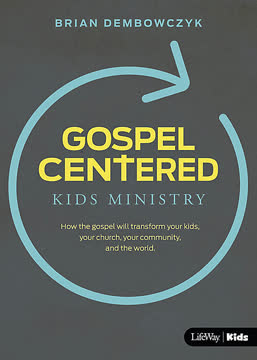Key Takeaways
1. The Alarming Reality: Young Adults Are Leaving the Church
Dropping out of the church is far more than rejecting church culture.
A serious problem. Statistics reveal a concerning trend: roughly 70 percent of young adults disengage from the church after high school, with about 20 percent leaving permanently. This isn't merely a shift in preference or a temporary break; it signifies a deeper issue within the spiritual formation of the next generation. The numbers paint a stark picture:
- 20% of kids will walk away from the church for good.
- 50% will leave for a season but eventually return.
- Only 30% will remain consistently connected.
More than just attendance. This exodus from the church is not just about empty pews; it's a symptom of empty hearts. The author argues that walking away from the church is fundamentally forsaking the gospel, refusing personal transformation, and rejecting God's mission for believers. It's a departure from Jesus and everything He died for, indicating a failure to anchor the gospel deeply in their hearts during their formative years.
A call to introspection. This alarming dropout rate compels us to examine our ministries, asking critical questions about the foundations we are laying for our children. Are we truly equipping them with the satisfying, transformative power of the gospel, or are we inadvertently setting them up for spiritual disillusionment and eventual departure? The stakes are eternal, demanding an urgent and honest assessment of our approach.
2. Gospel-Centered Kids Ministry: The Key to Reversing the Trend
I believe 70 percent of our kids will walk away from the church as young adults because we’ve failed to anchor the gospel into their hearts as kids and teens.
The missing anchor. Many young adults leave the church because they haven't been given the full, rich, beautiful gospel—the one thing that truly satisfies the soul and engages the imagination. Instead, they often receive a fragmented understanding of the Bible, moralistic lessons, or behavior modification strategies that fail to connect the entire biblical narrative to Jesus. This leaves them without the deep, sustaining foundation needed for lasting faith.
Beyond surface-level teaching. A gospel-centered kids ministry goes beyond simply sharing a gospel presentation; it makes the gospel the essence of everything taught, every single time. It asks:
- Do kids hear Jesus each week and understand how the Bible is one big story about Him?
- Are we teaching identity in Christ, or the burden of performing to please God?
- Are we creating space for kids to recognize their sinfulness and desperate need for a Savior?
A transformative force. The author contends that gospel-centered kids ministry is on the front lines of this battle, holding the key to stopping church dropout and transforming not just kids, but also families, churches, communities, and the world. It's about cultivating hearts captivated by Christ, basking in God's grace, and living transparently on mission, rather than merely producing "good Christian kids" through external pressure.
3. From Scattered Stories to the One Big Story: Teaching Jesus in All Scripture
Jesus interpreted Scripture, not as a collection of random stories but as one big story about Him.
Connecting the dots. Just like the disciples on the Emmaus Road, many children know individual Bible stories but fail to see how they all connect to form one grand narrative about Jesus. This fragmented understanding leaves them "foolish and slow to believe," missing the obvious conclusion that Christ is the central thread tying all of Scripture together. Our goal in teaching should be to consistently point to Jesus in every story, from Genesis to Revelation.
The myth of "kid stories." The idea that some Bible stories are too "explicit" or "violent" for children is unbiblical and often leads to sanitizing the text, robbing it of its full power. While age-appropriateness in delivery is crucial, all Scripture is profitable. Ignoring themes like sin, death, and judgment in stories like Noah's Ark or David and Goliath prevents children from understanding the profound need for a Savior and the depth of God's grace.
Beyond moralism. When Bible stories are watered down and taught in isolation, they often devolve into moralistic lessons: "Be brave like David," or "Obey God like Noah." This approach focuses on what we should do, rather than what Jesus has already done, setting kids up for failure and frustration. Instead, we must teach how every story either proclaims or points toward the gospel, revealing Jesus as the ultimate hero and the source of all hope and transformation.
4. Embracing the Full Gospel: Understanding Sin to Appreciate Grace
We cannot properly understand the more palatable parts of the gospel, such as God’s love, grace, mercy, and forgiveness, apart from understanding our depravity and God’s holiness.
The dark turn. The gospel story begins with God's glorious creation, but quickly takes a devastating turn with humanity's rebellion in Genesis 3. Sin broke our relationship with God, introduced death, and plunged humanity into hopelessness. The Old Testament, with its repeated accounts of human failure, screams of our complete inability to overcome sin through our own efforts—whether by being "good enough," "religious enough," or relying on heritage.
God's provision. This bleak reality sets the stage for the beauty of God's rescue plan: Jesus. The gospel is the good news that God, in His wisdom, love, kindness, and grace, provided Jesus to die in our place, paying the sin penalty we deserved. This substitutionary atonement is a two-way transaction: Jesus took our sin and gave us His perfection, making us righteous before God.
The "already" and "not yet." The gospel's good news extends beyond salvation. It includes the ongoing work of the Holy Spirit, transforming believers into the image of Jesus, and the future hope of Christ's return when sin and death will be no more. Our kids need to grasp this full narrative—from creation to fall, redemption, and restoration—to truly appreciate the majesty of God's love and the hope found in Jesus.
5. Gospel Transformation: Obedience Flows from a Changed Heart, Not for Acceptance
We are changed not by being told what we need to do for God, but by hearing the news about what God has done for us.
Heart over hands. True righteousness, as Jesus taught in the Sermon on the Mount, originates in the heart, not merely in external behavior. The Pharisees, with their meticulous adherence to the law, exemplified hollow obedience motivated by pride and a desire for human praise. Jesus condemned this spiritual showmanship, emphasizing that a transformed heart, not just outward actions, is what truly pleases God.
Obedience from gratitude. When we teach the Bible through a gospel lens, we position kids for lasting transformation. We explain why God's commands matter, anchoring the "what" to the "who" and "what" of Jesus. Our kids should obey out of:
- Loving gratitude for God's grace.
- Joy, not resentment.
- An overflowing appreciation of the gospel.
God working in us. The stunning truth of the gospel is that even our ability to obey is empowered by God's grace and the Holy Spirit. As Paul wrote in Philippians 2:12-15, we "work out our own salvation with fear and trembling, for it is God who is working in you both to will and to work according to his good purpose." This means our growth and obedience are not based on our own strength, but on God's continuous work within us, leading to a life that naturally bears fruit for His glory.
6. The Church: A Community of Changing People on Mission
Being part of a gospel community is not an option as some see it. It is a necessary expression of belief in the gospel.
The divine dance. God, in His triune nature, has always existed in perfect relationship, a "divine dance" of unity and harmony. He created humanity not out of loneliness, but to invite us into this overflowing love and relationship. Sin broke this dance, but through Jesus, God provided a way for us to return, restoring our relationship with Him and with each other.
More than a gathering place. The local church is not just a building or a weekly service; it is a community of faith where relationships are restored and nurtured. It's a place where believers:
- Walk alongside each other in gospel transformation.
- Encourage, equip, and hold one another accountable.
- Share struggles and victories as the Spirit changes them.
A unified mission. The church's mission, as outlined in the Great Commission, is to "go and make disciples of all nations." This isn't a suggestion but a command, empowered by Jesus' ultimate authority. "Going" is an ongoing, daily rhythm of life, not just a programmed event. It involves baptizing new believers into gospel community and teaching them to live out their transformed lives, all while demonstrating the beauty of God's design for community to the world.
7. Kids Are Missionaries Today: Mobilizing an Untapped Force
Kids who have trusted in Jesus are part of that one church.
Not the "church of tomorrow," but the church of today. The phrase "kids are the church of tomorrow" subtly diminishes their current vital role. Theologically, functionally, and missionally, children who have trusted in Christ are full members of the one body of Christ, possessing the same salvation, access to God, and call to mission as adults. They are not second-class citizens but active participants in God's kingdom right now.
Unique gifts and access. Kids bring unique energy, joy, and a profound childlike humility to the church. Their unashamed dependence on God serves as a powerful model for adults, reminding us that we too need help and must fully depend on Jesus for salvation. Furthermore, kids have unparalleled access to their peers—a ripe mission field where most people come to faith before age eighteen.
Pipes, not buckets. We must shift our perspective from seeing kids as "buckets" to be filled with knowledge, to "pipes" through which the gospel flows. We need to equip, empower, and encourage them to be missionaries in their daily lives:
- Spiritual Needs: Teach them to share the gospel simply and pray for their friends.
- Physical Needs: Encourage acts of service like helping neighbors or collecting items for the needy.
- Emotional Needs: Foster empathy and selflessness, teaching them to comfort and care for others.
By mobilizing this untapped missionary force, we can see the Great Commission fulfilled in our cities and beyond, as kids impact their friends, families, and communities with the gospel.
8. Gospel-Centered Leaders: Theologians, Disciples, and Missionaries
God cares about character more than He cares about competence.
The weight of leadership. Serving in kids ministry is a weighty calling, demanding leaders who are deeply rooted in the gospel. Paul's Pastoral Epistles emphasize that godly leadership is crucial for the long-term health of the church, focusing more on character traits like being "above reproach, self-controlled, sensible, respectable" than on mere skills. While competence is important, it's character, born from gospel transformation, that truly produces fruit for the kingdom.
Every leader a theologian. Every kids leader is a theologian, whether good or bad, because everyone has an understanding of God. It is critical for kids leaders to have a correct and deepening understanding of God and the gospel, as they lay the theological foundations for children. Like Apollos, who was already eloquent and passionate, we must be willing to be taught "more accurately" to teach with greater clarity and conviction, especially when addressing weighty subjects like sin, death, and grace.
Disciples first, leaders second. Leaders must prioritize their own gospel transformation, guarding time for rest, prayer, and spiritual growth. Serving on empty short-circuits gospel transformation in our own lives and prevents the Holy Spirit from working through us. Kids need leaders who are:
- Appropriately transparent about their struggles and growth.
- Humble, admitting their desperate need for the gospel.
- Committed to Christ, willing to do whatever it takes for His glory.
By nurturing our own spiritual lives, we model authentic discipleship and ensure that our teaching flows from an overflow of God's work in us, not from our own depleted strength.
9. Parents as Primary Disciple-Makers: The Shema and Home-Church Partnership
Parents can’t pass along something they don’t already have.
God's blueprint for parenting. Deuteronomy 6:4-9, known as the Shema, outlines God's plan for parents as the primary shepherds of their children. It begins with a parent's personal relationship with God—knowing Him, loving Him with all their heart, and internalizing His words. Only then can parents effectively "repeat them to your children," weaving conversations about God into the natural rhythms of daily life.
Meeting in the middle. Historically, the pendulum has swung between the church being the sole disciple-maker and parents being handed the responsibility with little guidance. The solution lies in a collaborative partnership where kids ministry leaders and parents work together. The author warns against the danger of a generation abandoning God, much like the second generation after the Exodus, if parents and church leaders fail to equip and support each other.
Equipping parents as theologians and missionaries. Kids ministries must actively partner with parents, coaching them on the "what, when, how, and why" of sharing the gospel. This involves:
- Praying for parents to embrace their role and grow in Christ.
- Being an encouraging influence, speaking words of life and grace.
- Informing parents of church curriculum to facilitate home discussions.
- Fostering community where parents can grow, admit imperfections, and celebrate milestones.
- Aligning curriculum across age groups to make home discipleship easier.
Parents must see themselves as missionaries in their own homes, taking the lead in disciple-making, and the church must do everything possible to support them in this vital mission.
10. The Urgency of "All Hands on Deck": Failure Is Not an Option
Failure was not an option for Paul. And that is the attitude we must embrace in kids ministry.
A crisis of eternal stakes. The alarming rate of young adults leaving the church is an "all hands on deck" crisis, far more dire than the Apollo 13 mission. The eternal destination of thousands of children hangs in the balance, demanding that every parent, pastor, and ministry leader actively participate in the solution. Passivity is not an option; we must do "whatever it takes" to rescue them with the gospel.
Paul's relentless pursuit. The Apostle Paul exemplified this "failure is not an option" mindset, making himself "a slave to everyone, in order to win more people" (1 Corinthians 9:19). His singular focus was winning people to Christ, willing to endure any sacrifice or difficulty for the gospel. This same relentless pursuit must characterize our approach to kids ministry, recognizing the immense kingdom impact of faithfully sharing the full gospel with children.
Optimism in Christ's promise. Despite the challenging statistics, the author expresses great excitement and optimism for the church's future, fueled by a growing movement toward gospel-centeredness. Churches are embracing authenticity, recognizing their desperate need for a Savior, and living out their missional calling. Jesus Himself declared, "I will build my church, and the gates of Hades will not overpower it" (Matthew 16:18). This divine promise assures us that as we charge toward the battle for our kids, we do so with unwavering hope, knowing that ultimate victory belongs to Christ.
Last updated:
Review Summary
Gospel Centered Kids Ministry receives overwhelmingly positive reviews, with readers praising its focus on teaching the gospel to children. Many find it insightful, practical, and easy to read. Reviewers appreciate the book's emphasis on making children's ministry more than just storytelling, instead centering on the gospel message. Some readers note that while the ideology is strong, more practical application would be helpful. Overall, the book is highly recommended for those involved in children's ministry, parents, and church leaders alike.
Similar Books










Download PDF
Download EPUB
.epub digital book format is ideal for reading ebooks on phones, tablets, and e-readers.





